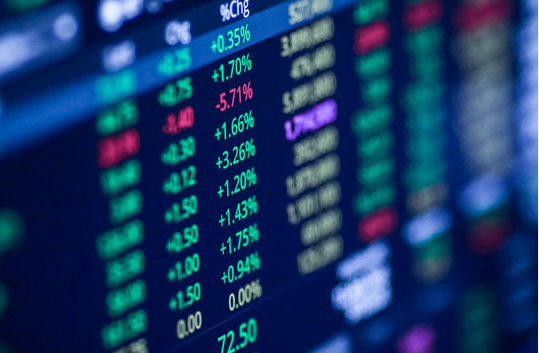Retail security has evolved significantly over the past few decades. What once relied on simple lock-and-key systems and physical surveillance now incorporates cutting-edge technologies and sophisticated strategies. With an increasing number of threats like shoplifting, employee fraud, and cybercrime, retailers are turning to innovative solutions to protect their assets, customers, and employees. From artificial intelligence (AI) to robotics and cloud-based security platforms, the future of retail security services is rapidly transforming.
This article will explore the future of retail security, examining the innovative technologies that are shaping the industry and how retail security services are adapting to new threats. Additionally, we’ll discuss how close protection services are evolving to meet the growing demands for high-level security in retail spaces.
Why Retail Security Is More Critical Than Ever
Retail businesses face multiple security threats that continue to evolve. Theft, fraud, cyberattacks, and even customer safety concerns are all critical issues. According to the National Association for Shoplifting Prevention, around $13 billion is lost each year due to shoplifting in the U.S. alone. These losses can significantly affect a retailer’s bottom line. This has led to an increasing focus on securing both physical and digital retail spaces.
Moreover, retail environments are becoming more complex. The rise of online shopping, hybrid shopping experiences, and the need for contactless transactions mean that retailers must think beyond traditional security measures. As such, technology and innovation play a key role in shaping the future of retail security.
Key Trends Shaping the Future of Retail Security
1. Artificial Intelligence and Machine Learning
Artificial Intelligence (AI) and Machine Learning (ML) are revolutionizing retail security services. By integrating AI into security systems, retailers can benefit from more proactive and intelligent security measures.
AI-powered security cameras are able to recognize suspicious behavior, such as someone attempting to conceal an item, or identifying loitering around high-value items. Through retail security services that use AI, stores can monitor behavior patterns in real time, enabling faster responses to potential threats.
Machine learning can also be used to enhance facial recognition systems. This can help retailers identify repeat offenders or track individuals that have been previously flagged for suspicious activity. The advanced data analysis capabilities of AI enable systems to learn from experience, continuously improving their ability to detect threats, making them a valuable tool for preventing theft.
Furthermore, AI can also help in employee monitoring. Retailers are increasingly adopting AI for monitoring not only customer activity but also employee behavior. By using AI to analyze employee actions, businesses can reduce internal theft and fraud while ensuring compliance with company policies.
2. Robotics and Automated Systems
Robotic technology is making significant strides in retail security. Automated security robots are now patrolling retail spaces to detect and report suspicious activities. These robots are equipped with high-definition cameras, sensors, and AI to identify potential threats. They can even communicate with security personnel, providing real-time updates on any situation.
Some robots are even capable of scanning for specific violations, like blocking exit routes or unattended shopping carts, which can alert security staff instantly. Robots can cover large areas more efficiently than human guards, reducing costs and improving overall security coverage.
Additionally, drones are being used in larger retail environments, especially warehouses and distribution centers, to oversee the premises. They can quickly and efficiently conduct aerial surveillance, identifying any unusual activity or security breaches from an elevated viewpoint.
3. Smart Surveillance Systems
Surveillance technology has always been central to retail security services, but with the advent of smart cameras, security is becoming more efficient. Smart cameras, powered by AI and cloud storage, can provide real-time monitoring and instant alerts. These cameras are equipped with advanced features such as night vision, facial recognition, and object tracking, making it easier to pinpoint threats and ensure the safety of customers and staff.
These systems offer superior video quality compared to traditional CCTV, making it easier to capture important details such as license plates, facial features, and the actions of suspects. The added benefit is that these cameras can be connected to cloud platforms, where the footage can be stored and accessed remotely. This allows for faster investigation and response, as security staff can access footage from anywhere at any time.
Moreover, AI-enabled cameras can identify patterns in video footage, such as identifying potential shoplifters who may be using common tactics like returning to the same store repeatedly. By analyzing past behavior and actions, smart surveillance systems can prevent losses before they happen.
4. Integrated Access Control Systems
Access control systems are essential to prevent unauthorized access to restricted areas of a store, such as storage rooms or areas housing high-value items. The future of retail security is increasingly moving toward integrated systems that combine traditional access control with advanced features like biometrics, mobile access, and remote management.
Biometric systems, including fingerprint recognition, facial scans, and retinal scans, are becoming more widespread in retail environments. These systems provide a higher level of security than traditional keycards or PIN codes, as they ensure that only authorized personnel have access to sensitive areas.
Mobile access is also an emerging trend. Many retail establishments now use smartphone apps to control access to secure areas. Employees or authorized personnel can use their phones as keys to unlock doors, making the process smoother and reducing the risk of unauthorized access.
5. Cybersecurity and Data Protection
As retail moves increasingly online, the security of customer data becomes paramount. Cybersecurity is no longer a separate issue from physical security in retail—it’s a part of the broader security strategy. Retailers must ensure that their online platforms, payment systems, and customer databases are secure from cyberattacks, which could result in the theft of sensitive customer information or loss of business assets.
Retail security services are now incorporating cybersecurity protocols to protect against data breaches, hacking, and online fraud. These systems often include advanced encryption methods, secure payment gateways, and monitoring software that identifies and responds to suspicious online activity in real time.
With the rise of e-commerce and hybrid shopping models, ensuring secure transactions and customer trust is essential. Cybersecurity will play a critical role in shaping the future of retail security, especially as customers increasingly demand safe and secure digital shopping experiences.
6. Close Protection Services for High-Value Assets and Personnel
For certain retail environments, especially those dealing in luxury goods or high-profile customers, close protection services are becoming more vital. High-net-worth individuals, VIP customers, or valuable assets—like jewelry, luxury watches, and designer items—require additional layers of protection.
Close protection services ensure the safety of both customers and staff, particularly in high-risk retail environments. Personal protection officers (PPOs) are specially trained to prevent threats from escalating, offering discreet yet vigilant security.
For instance, if a retail store is hosting a high-profile celebrity or executive, close protection services may be employed to ensure their safety throughout their visit. Similarly, luxury retailers may use close protection officers to safeguard high-value items during transport or during large sales events, where the risk of theft is higher.
The Role of AI and Data Analytics in Future Security
One of the most powerful tools in the future of retail security services will be data analytics. AI and machine learning models can analyze data from multiple sources—CCTV, access control systems, and even customer behavior analytics—to provide actionable insights into potential security risks.
For example, if a certain area of the store sees an unusual spike in traffic or specific patterns of shoplifting, AI can highlight these trends and provide recommendations for preventive measures. Moreover, AI can optimize the allocation of security resources, ensuring that security staff are positioned where they are needed most.
The Integration of Security with Customer Experience
As the retail industry grows, security measures will need to seamlessly integrate with the overall customer experience. Consumers are increasingly expecting frictionless shopping experiences, and security systems must enhance rather than hinder this experience. Intelligent security systems will be designed to be unobtrusive, with seamless entry, exit, and transaction processes.
From facial recognition payment systems to automated security checks, the future of retail security will focus on providing a safe yet smooth shopping experience for customers.
Conclusion
The future of retail security is incredibly dynamic, with innovations such as AI, robotics, biometric access, and integrated cybersecurity shaping the way retailers protect their businesses. Retail security services will continue to evolve to meet the increasing sophistication of threats, offering more intelligent, proactive, and integrated solutions.
By incorporating advanced technologies like AI, machine learning, smart surveillance systems, and close protection services, retailers can reduce risk, prevent losses, and enhance both the customer and employee experience. The future of retail security is not only about protecting assets but also creating a secure, seamless, and customer-friendly environment. As technology advances, the retail industry will continue to find innovative ways to balance security and convenience, ensuring a safe, modern shopping experience for everyone.




